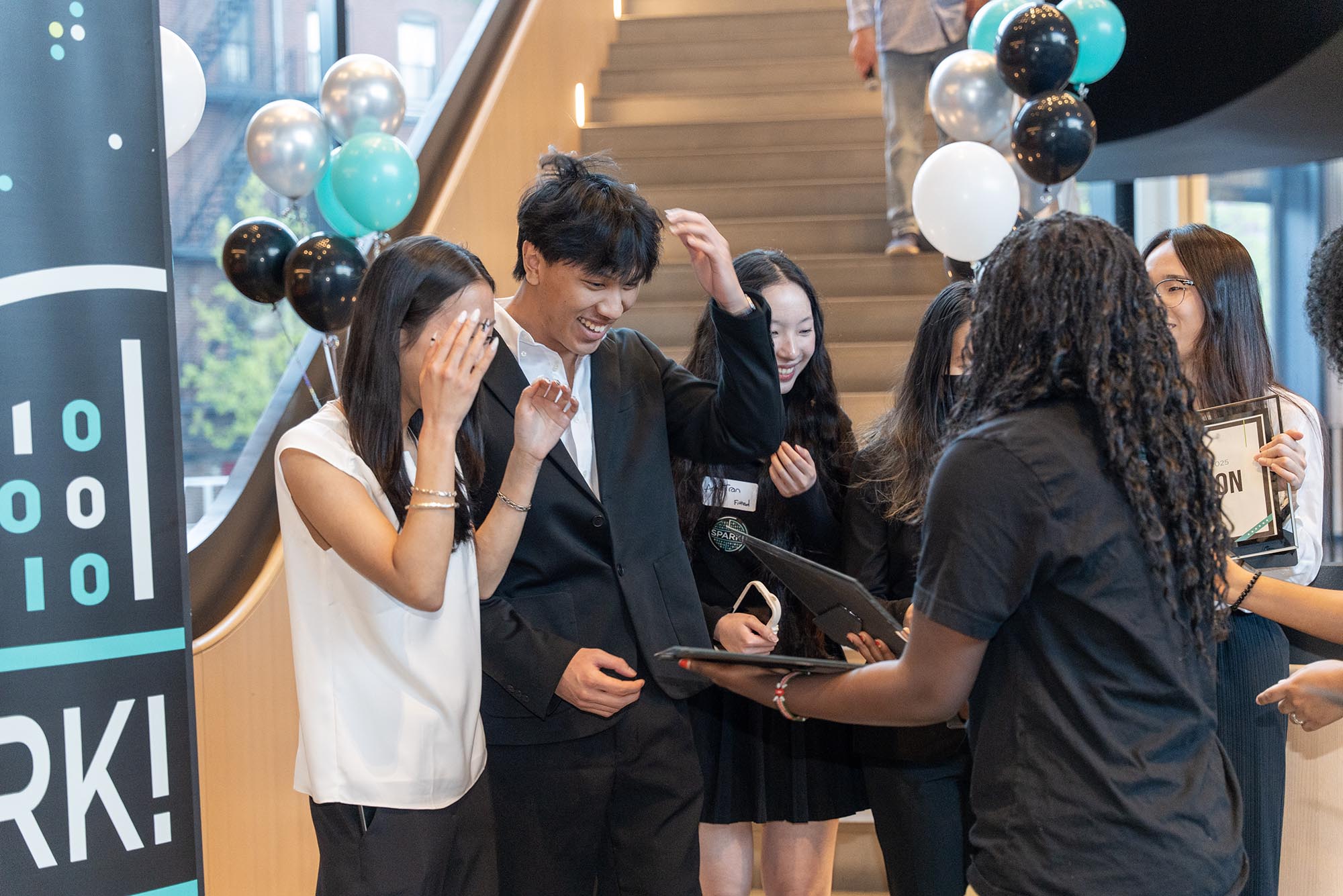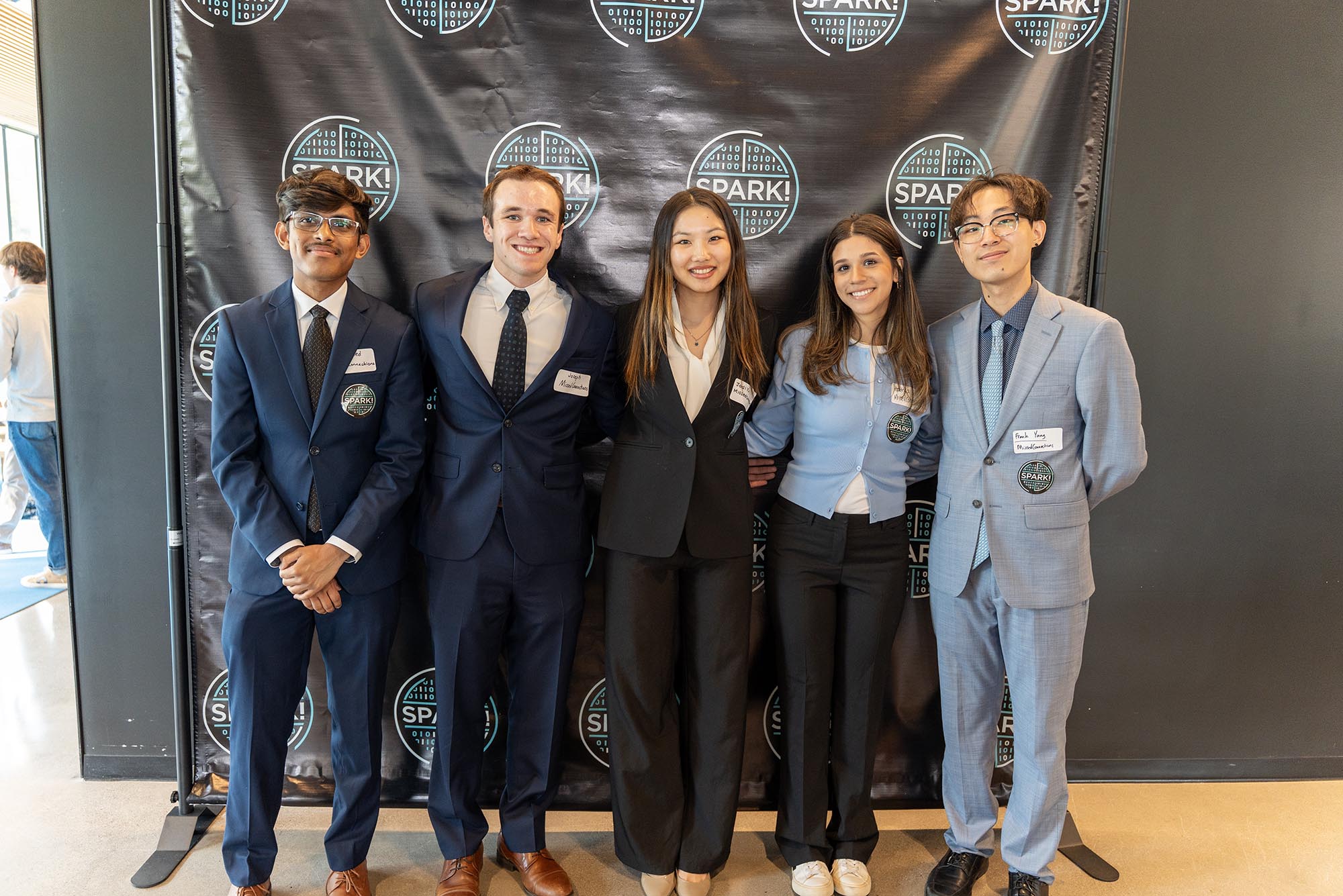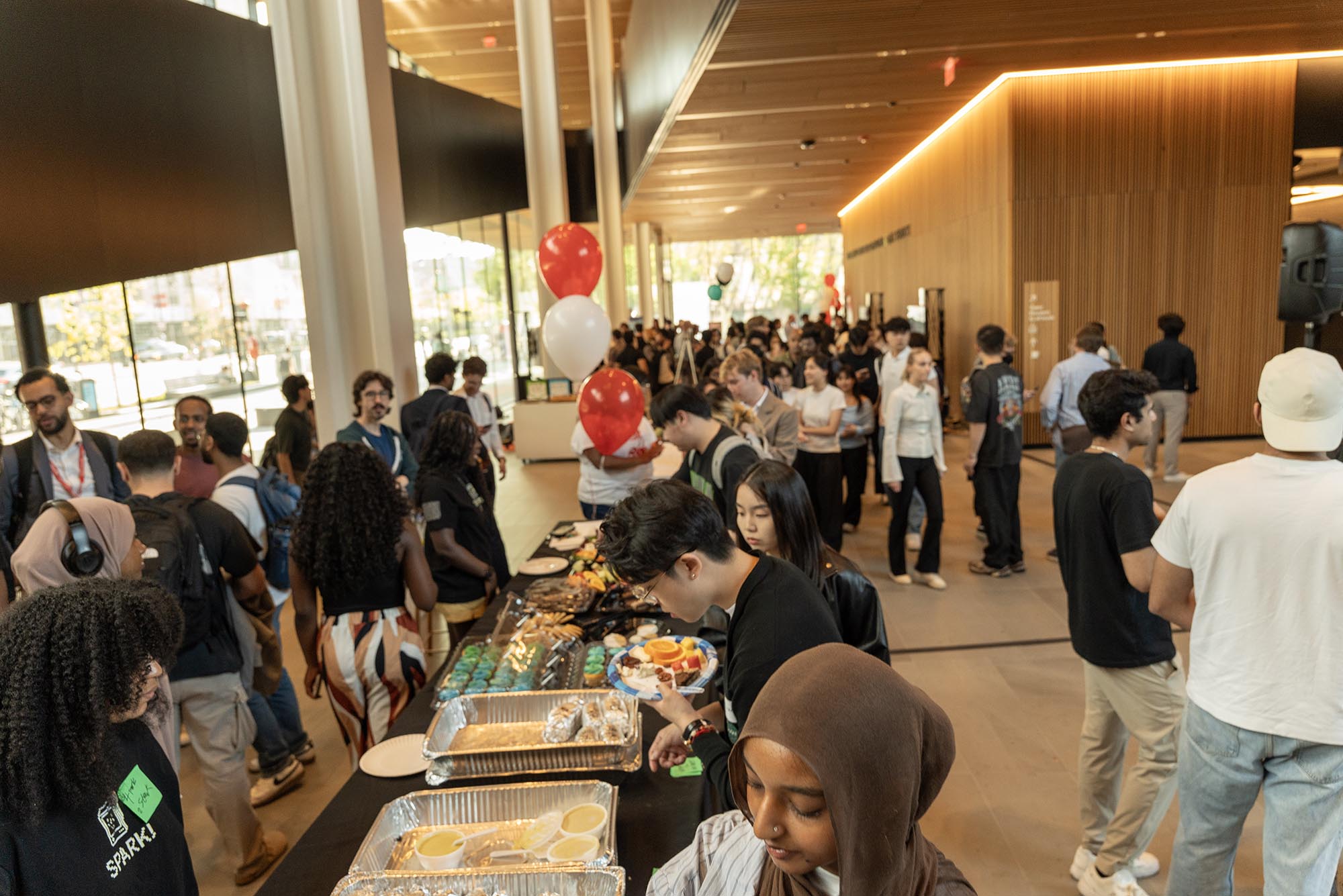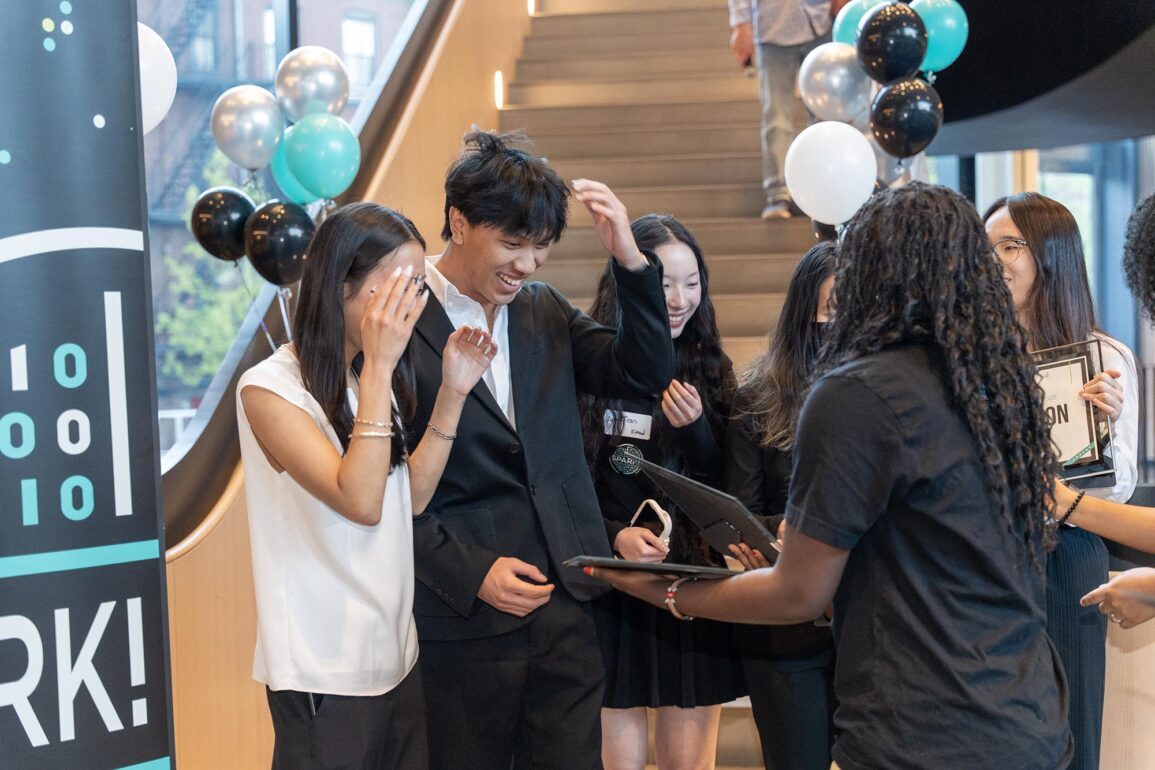BU’s biannual Experiential Learning Expo showcases dozens of entrepreneurial student projects
With a wealth of influencers, brands, clothes, and aesthetics saturating the fashion world, pinpointing your personal style can seem daunting. It’s no wonder The Telegraph once reported women spend 287 days of their lives deciding what to wear.
Here at BU, a group of students is tackling the issue.
Yuting Lin (CFA’26, CAS’27), Janet Liu (CFA’26), Anh Tran (CAS’25), Isaac Chan (CAS’27), and Kate Seo (CAS’26) designed Fitted, a fashion-focused social networking app that lets users share pictures of their outfits with close friends. The app’s focus on style inspiration and mindful fashion consumption—without the pressures of traditional social media—drew the judges’ attention at the spring 2025 BU Spark! Demo Day, held May 2.

The twice-annual Demo Day allows students in BU Spark! the innovation and experiential learning lab at BU’s Faculty of Computing & Data Sciences, to showcase their projects. It also features a competition for the judges’ choice award, won by Fitted.
When the victorious project was announced, the Fitted team erupted in cheers of surprise and excitement.
“The fact that our story and our values around authenticity and friendship aligned with the judges, I think, was really surprising, but also rewarding,” Seo says.
The idea for Fitted came from Seo’s experience at the intersection of fashion and social media. She says posting her outfits on Instagram began to feel intimidating because so many people could see them, but she still wanted to document her style.
The solution? An OpenAI-powered app that takes the pressure off of posting. Fitted posts appear on the feed for only 24 hours, do not feature the traditional “like” system, and stay between close friends.
Chan emphasizes how cohesively the team worked together to bring the app to life.
“All of us really put in the work,” he says. “But I think what really made us stand out in terms of getting things done was delegating tasks and features that every specific member wants to work on and is also really strong at.”
The judges’ choice award wasn’t the only chance for talented students to face off. There was also an audience choice award, which went to MissedConnections.

An app designed by Andrea Rojas Doupovec (CFA’25, CAS’25), Jodi Yu (CAS’26), Joseph Marotta (CAS’27), Mohammed Hit (CAS’27), and Frank Yang (CAS’27), MissedConnections helps BU students meet peers who they might routinely cross on campus, but never get the chance to speak to. Users check into the app at various moments in the day, and in the evening it suggests three other people who were somewhere along their path earlier and have similar interests, hobbies, and goals.
“We hope that through our social media app, you will finally get to connect to people who you see every day, but never get a chance to talk to,” Yang says.
As they ride the high of winning a Demo Day award, Yang says, the MissedConnections team is looking to continue developing the app and launch it to BU students. “It was cool to be able to finally present to the greater BU audience our idea that we’ve been working on, and showcase it to other people,” he says. “We were very happy about that.”
Spark! Demo Day is part of the larger Experiential Learning Expo, which also featured student projects from the Learning Assistant Program and Cross-College Challenge (XCC). With posters, presentations, food, and more, the festivities lit up the Center for Computing & Data Sciences and welcomed attendees from students and professors to industry and civil society partners.
Demo Day highlights unique programs within Spark! ones that involve data science and computing projects that are either dreamt up by ambitious students themselves or partnered with an external client.
Spark! director Ziba Cranmer emphasizes these students’ impact at the University and beyond. “We are a resource for the community, for faculty and departments that want to leverage the skills from these students,” Cranmer says. “We really love working on projects for the BU community.”

Student innovation shone from every corner of the event. There were projects from Justice Media Co-lab—a collaboration between CDS, the College of Communication’s journalism department, and media partners—looking into think tanks, Boston housing, and medical debt. A data visualization project gives new life to numbers from Boston’s Office of Police Accountability and Transparency. Head-turning projects on identifying stranger danger behaviors toward children and prison overcrowding abounded during the poster session.
Azer Bestavros, associate provost for Computing & Data Sciences, a William Fairfield Warren Distinguished Professor, and a College of Arts & Sciences professor of computer science, says Demo Day gives students the chance to celebrate their hard work and get inspired by their peers. “It’s empowering to the students and inspiring to people like myself or the clients,” he says.
Experiential learning opportunities help students tackle real-world issues, he says, and at the same time make computing and data sciences more accessible to the broader community.
“When an undergraduate student is done with their project, they can describe what they’ve done in 10 minutes, and fellow students see that,” Bestavros says, “even if these students are not computing and data sciences students, they now understand something about what this technology delivers, right?”
Explore Related Topics:
This post was originally published on this site be sure to check out more of their content








